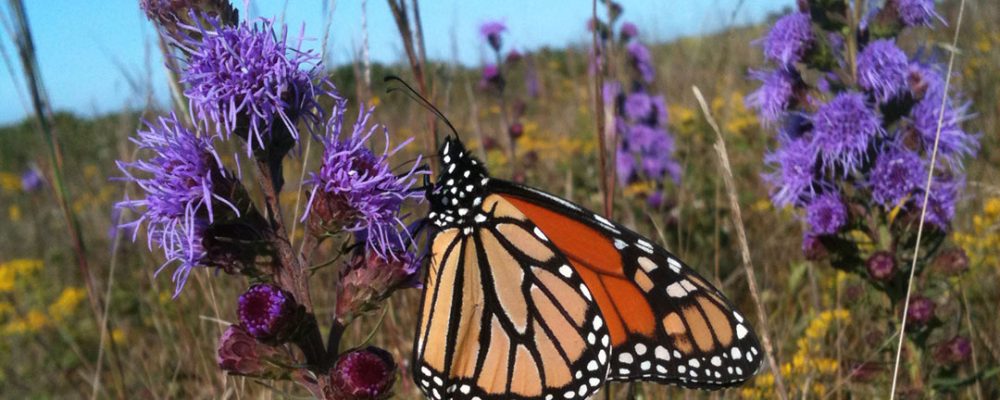Planting for Pollinators on Nantucket will run again in 2023; please register by clicking here to sign up and share it with your friends as well!
Below, you will find information and tips on putting your pollinator garden to bed to ensure our pollinator friends are protected and healthy through winter, guaranteeing a robust transition into spring.
Now that we’re experiencing cooler fall temperatures and conditions, you’re probably thinking about how to prepare your pollinator garden for a winter’s rest. Good news – you don’t have to do much! All you need to do is leave the leaves (which can be hard to resist as raking big neat piles is quite satisfying).
Leaving the leaves, stems, fruits, and seeds in your gardens will help pollinators overwinter by providing warm and safe shelter.
If you are motivated to do some raking, you can rake the leaves onto your flower or gardens, as this will serve as mulch and provide nutrients as they decompose. You can also place a few branches along your property line since they will eventually decompose but will give homes to leaf-cutting bees, some butterflies, and swallowtails who attach their overwintering chrysalis’ to stems.
You’re probably wondering where the pruning comes in and whether you need to cut back the tall and leggy plant stalks. Well, based on the above information, you probably guessed that pruning is not required. Any cutting back of canes, stalks, or other standing plant material will negatively affect our pollinator friends, who might be nesting and snuggling in for winter.
If you’re yearning to do something in your pollinator garden, the best thing you can do is rewild your lawn by seeding bare lawn spots with flowering ground covers. Wildflowers can provide nectar and pollen to foraging bees for years to come, in addition to enhancing soil nutrients, reducing erosion, and ensuring continuous ground cover.
Note: Another step landscapers often take when completing a “fall clean-up” is mowing. But the truth is, as the fall progresses, grass stops growing. In this case, you can skip this step of mowing since taller grass is healthier for your lawn. Their deeper roots withstand heat stresses better than short grass and will even conserve moisture causing minimal growth from weeds.
As always, we love hearing from you – any questions, feedback, and observations are welcome and will only improve our program and the longevity of our native pollinators. Please stay tuned for updates on next year’s Pollinator Program!

